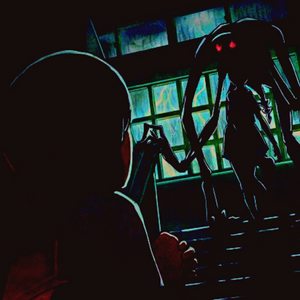Origami was a quiet, shy girl who loved creating intricate paper crafts. She would spend hours folding and creasing paper to create beautiful origami figures. However, her parents didn't share her passion and often berated her for wasting her time on such a silly hobby.
As Origami grew older, her parents' disapproval turned into outright abuse. They would tear up her paper creations and scold her for not focusing on more important things like schoolwork. Origami felt helpless and alone. She didn't know what to do, and she felt like she had nowhere to turn.
The abuse continued for years until Origami couldn't take it anymore. She ran away from home and sought refuge with a kind family who shared her love of origami. They welcomed her with open arms and helped her heal from the years of abuse.
With their support, Origami was able to turn her passion for origami into a career. She started a successful business creating custom origami figures for clients all over the world. She also became an advocate for abused children and used her story to raise awareness about the damaging effects of verbal and physical abuse.
Origami's journey wasn't easy, but she never gave up on her passion for origami. She used it as a way to heal and help others who had gone through similar experiences. Today, Origami is a shining example of resilience and creativity, and her paper creations continue to inspire people of all ages.
Running away from home at a young age was a daunting challenge for Origami. She was just a child and had to navigate the world independently. Initially, she had no plan and was uncertain about where she would go or what she would do. She faced a lot of difficulties in her journey, including finding a safe place to sleep, securing food and water, and staying out of harm's way.
As she wandered the streets, Origami encountered people who tried to take advantage of her, but she remained strong and vigilant. She also had to deal with the emotional trauma of leaving her family behind and not knowing when she would see them again. These challenges were overwhelming, and she often felt scared and alone.
Despite the difficulties, Origami never gave up. She was determined to find a place where she could pursue her passion for origami without fear of judgment or abuse. When she saw the tree in the park, she knew it was the perfect spot to create her own sanctuary. It wasn't easy living in a tree, but Origami used her creativity and resourcefulness to make it work. She felt like she had finally found a place where she belonged.
However, her journey wasn't over yet. Her parents were worried sick about her, and the authorities were looking for her. Origami had to find a way to reunite with her family and explain why she had run away. It took a lot of courage and strength, but she eventually returned home and found a way to reconcile with her parents. She also used her experience to raise awareness about child abuse and help other children who were going through similar challenges.
Through all the challenges she faced, Origami remained true to herself and her passion for origami. She never gave up on her dreams and used her creativity to overcome the obstacles in her path. Her journey was difficult, but it taught her valuable lessons about perseverance, resilience, and the power of creativity.
Origami's relationship with her parents was complicated. On one hand, she loved them and wanted their approval, but on the other hand, they didn't understand her passion for origami and often disapproved of her hobby. They would scold her for making a mess with her paper creations and tell her to focus on more important things like schoolwork.
As Origami grew older, her parents' disapproval turned into outright abuse. They would tear up her paper creations and belittle her for not living up to their expectations. This abuse took a toll on Origami's mental health and made her feel isolated and alone.
Despite all this, Origami still loved her parents and longed for their acceptance. When she ran away from home, she felt guilty for causing them to worry and didn't want to disappoint them further. However, she knew that she needed to follow her dreams and find a place where she could be herself without fear of judgment or abuse.
In the end, Origami was able to reconcile with her parents and find a way to communicate with them about her passion for origami. She used her experience to raise awareness about the importance of supporting children's hobbies and interests and the dangers of verbal and physical abuse. Despite their differences, Origami's relationship with her parents taught her important lessons about love, forgiveness, and the power of communication.











Comments (4)
See all